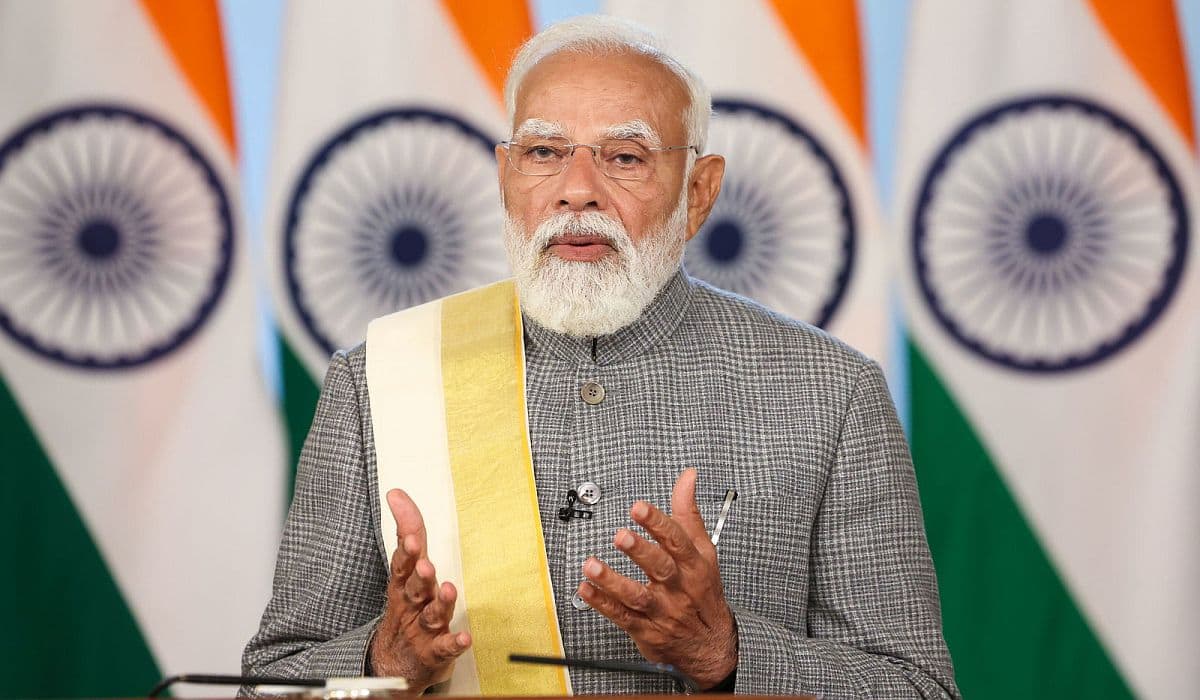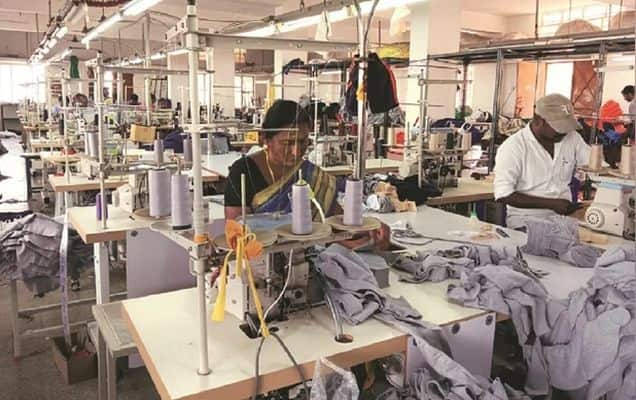యువర్ హైనెస్,
ప్రముఖులారా,
నమస్కారం.
ఈ రోజు కార్యక్రమానికి ఎంపిక చేసుకొన్న ఇతివృత్తం చాలా సందర్భ శుద్ధిగలదీ, తరువాతి తరం భవిష్యత్తుతో ముడిపడిందీనూ. న్యూ ఢిల్లీలో ఇదివరకు జి20 శిఖరాగ్ర సమావేశాన్ని నిర్వహించినప్పుడు, స్థిరాభివృద్ధి లక్ష్యాల (ఎస్డీజీస్) ను త్వరితగతిన సాధించడానికి ‘వారణాసి కార్యచరణ ప్రణాళిక’ను మనం ఆమోదించాం.
మనం 2030కల్లా పునరుత్పాదక ఇంధన ఉత్పత్తిని మూడింతలుగాను, ఇంధన సామర్థ్యం రేటును రెండింతలుగాను చేయాలని తీర్మానించాం. ఈ లక్ష్యాల అమలుకు బ్రెజిల్ అధ్యక్షతన జరుగుతున్న ఈ సమావేశంలో ప్రాధాన్యాన్ని ఇచ్చారు; దీన్ని మేం స్వాగతిస్తున్నాం.
ఈ సందర్భంగా, స్థిరాభివృద్ధి కార్యక్రమ అమలు దిశలో భారతదేశం ఎంతగా కట్టుబడి ఉందో, ఎంతగా కృషి చేస్తోందో నేను వివరించదలచుకొన్నాను. గడచిన పదేళ్ళ కాలంలో మేం 4 కోట్లకు పైగా కుటుంబాలకు ఇళ్ళు నిర్మించాం.
గడచిన అయిదేళ్ళలో, 12 కోట్ల ఇళ్ళకు స్వచ్ఛమైన తాగునీటి సరఫరా సదుపాయాన్ని కల్పించాం. 10 కోట్లకు పైగా కుటుంబాలకు కాలుష్యానికి ఆస్కారం లేని వంటింటి ఇంధనాన్నీ సమకూర్చాం.11.5 కోట్లకు పైగా కుటుంబాలకు టాయిలెట్ సదుపాయాలను అందుబాటులోకి తెచ్చాం.
మిత్రులారా,
మా కృషి అంతా ప్రగతిశీలమైన, సమతుల్యమైన భారత సాంప్రదాయిక ఆలోచనలపై ఆధారపడింది. భూమిని తల్లిగా, నదులను ప్రాణదాతలుగా, వృక్షాలను దేవతలకు ప్రతీకలుగా మేం భావిస్తాం.
ప్రకృతిని సంరక్షించడం మన నైతిక బాధ్యతే కాకుండా, ప్రాథమిక కర్తవ్యమని కూడా మేం నమ్ముతున్నాం. పారిస్ ఒప్పందంలో భాగంగా చేసిన వాగ్దానాలను అనుకున్న కాలాని కన్నా ముందే నెరవేర్చిన మొట్టమొదటి జి20 సభ్య దేశం భారతదేశమే.
ఇప్పుడు మేం మరింత మహత్తర లక్ష్యాల సాధన మార్గంలో శరవేగంగా ముందుకు పోతున్నాం. మేం 2030 కల్లా గిగా వాట్ (జీడబ్ల్యూ) పునరుత్పాదక ఇంధనాన్ని సమకూర్చుకోవాలని లక్ష్యంగా పెట్టుకొన్నాం. దీనిలో 200 గిగా వాట్ల పునరుత్పాదక ఇంధన ఉత్పత్తి సామర్థ్యాన్ని మేం ఇప్పటికే సొంతం చేసుకొన్నాం.
గ్రీన్ ట్రాన్సిషన్ను మేం ఒక ప్రజా ఉద్యమంగా తీసుకొన్నాం. ప్రపంచంలో అత్యంత భారీదైన కార్యక్రమంలో భాగంగా ఇంటి పైకప్పు మీద సౌర విద్యుచ్ఛక్తిని ఉత్పత్తి చేసే ప్యానల్స్ను అమర్చే కార్యక్రమంలో దాదాపు ఒక కోటి కుటుంబాలు చేరాయి.
మేం మా ఒక్కరి గురించే ఆలోచించడం లేదు, యావత్తు మానవాళి ప్రయోజనాలను కూడా మేం దృష్టిలో పెట్టుకొన్నాం. ప్రపంచంలో మానవజాతి మనుగడ దీర్ఘకాలం పాటు సాగాలని చాటిచెప్పడానికి మిషన్ లైఫ్ను మేం ప్రారంభించాం. ఆహార పదార్థాలను వృథాగా పోనిచ్చామా అంటే గనక అది ఆకలి సమస్యను పెంచడంతో పాటు వాతావరణంలోకి కర్బన ఉద్గారాలను పెంచుతుంది. ఈ విషయంలోనూ మనం కృషి చేయవలసి ఉంది.
మేం అంతర్జాతీయ సౌర కూటమిని (ఇంటర్నేషనల్ సోలర్ అలయన్స్) ప్రారంభించాం. దీనిలో 100కు పైగా దేశాలు చేరాయి. ‘‘ఒకే సూర్యుడు, ఒకే ప్రపంచం, ఒకే గ్రిడ్’’ (వన్ సన్, వన్ వరల్డ్, వన్ గ్రిడ్) కార్యక్రమంలో భాగంగా ఎనర్జీ కనెక్టివిటీ విషయంలో మేం సహకారాన్ని అందిస్తున్నాం.
భారతదేశం ఒక గ్రీన్ హైడ్రోజన్ ఇనొవేషన్ సెంటర్ను ఏర్పాటు చేయడంతోపాటు, గ్లోబల్ బయోఫ్యూయల్ అలయన్స్ను కూడా ప్రారంభించింది.
వ్యర్థాల నుంచి ఇంధనాన్ని ఉత్పత్తి చేయాలన్న ఒక ప్రచార ఉద్యమాన్ని మేం మా దేశంలో పెద్దఎత్తున నడుపుతున్నాం.కీలక ఖనిజాలకు సంబంధించిన సవాళ్ళను పరిష్కరించడానికి మేం ఒక చక్రభ్రమణం విధానంపై దృష్టిని సారించాం.
ఈ ప్రచార ఉద్యమంలో భాగంగా ‘తల్లి పేరిట ఒక మొక్కను నాటవలసి ఉంటుంది’. మేం ఈ సంవత్సరంలో భారతదేశంలో దాదాపుగా ఒక వంద కోట్ల మొక్కలను నాటాం. మా దేశం కొయలిషన్ ఫర్ డిజాస్టర్ రిజిలియంట్ ఇన్ఫ్రాస్ట్రక్చర్ (సీడీఆర్ఐ) కార్యక్రమాన్ని మొదలుపెట్టింది. దీనిలో భాగంగా, మేం ఇప్పుడు విపత్తు అనంతర కాలంలో పునరుద్ధరణ ,పునర్ నిర్మాణ కార్యకలాపాలపై శ్రద్ధ తీసుకొంటున్నాం.

మిత్రులారా,
అభివృద్ధి చెందుతున్న (గ్లోబల్ సౌత్) దేశాల ఆర్థిక అభివృద్ధి, మరీ ముఖ్యంగా అభివృద్ధి చెందుతున్న చిన్న ద్వీపదేశాల అభివృద్ధి ఒక ప్రాధాన్య అంశంగా ఉంది. ఈ డిజిటల్ యుగంలో కృత్రిమ మేధ (ఏఐ) ప్రభావం అంతకంతకూ పెరుగుతూ పోతూ ఉన్న క్రమంలో సమతుల్య, సముచిత ఇంధన వనరుల ప్రాధాన్యం ఇదివరకటి కన్నా మరింత పెరిగిపోతోంది.
ఈ కారణంగా అభివృద్ధి చెందుతున్న దేశాలలో ఇంధనం మార్పు పథంలో పురోగమించడానికి ఆర్థిక సహాయాన్ని, అదీ తక్కువ భారంతో హామీ పడి అందించవలసిన బాధ్యత మరింత ప్రాముఖ్యాన్ని సంతరించుకొంది. అభివృద్ధి చెందిన దేశాలు కూడా టెక్నాలజీని, ఆర్థిక సహాయాన్ని దశలవారీగా అందిస్తామంటూ ఇచ్చిన వాగ్దానాలను నెరవేర్చడం అత్యవసరం.

భారతదేశం తాను ఫలితాలను ఎలా సాధించిందో అన్ని మిత్ర దేశాలకు, మరీ ముఖ్యంగా అభివృద్ధి చెందుతున్న దేశాలకు తెలియజేస్తోంది. మూడో గ్లోబల్ సౌత్ సమిట్ను నిర్వహించినప్పుడు మేం గ్లోబల్ డెవలప్మెంట్ కంపాక్ట్ను కూడా ప్రకటించాం. ఈ కార్యక్రమంలో చేరవలసిందిగాను, మా కృషిలో భాగస్తులు కావలసిందిగాను మీ అందరికీ నేను విజ్ఞప్తి చేస్తున్నాను.
మీకు ఇవే ధన్యవాదాలు.













